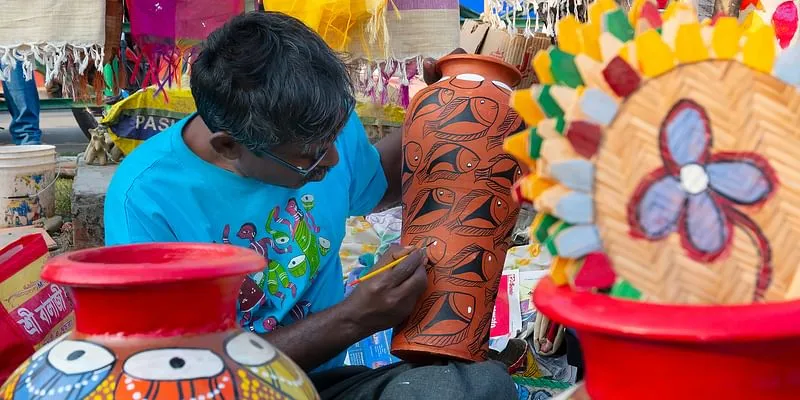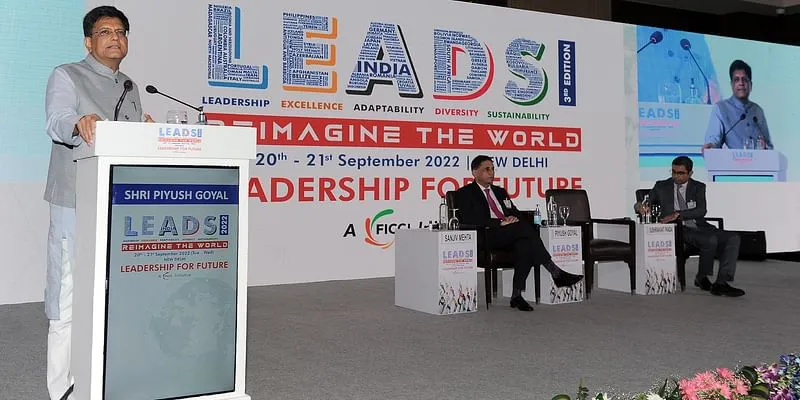Why brands are preferring D2C over ecommerce this festive season and other top picks of the week
Festive season shopping is going to be the trend for the next few days. And to understand the ecosystem, SMBStory spoke to local brands to find out their D2C strategies. Here’s what they said.
It's raining sales everywhere and people are busy shopping. From to , , and all the other marketplaces, this is the time of the year where they give blockbuster deals to its customers.
While the ecommerce marketplaces are flooded with discounts, brands this time are giving exclusive deals to their customers through their D2C channels. Sounds weird?
This week SMBStory spoke to founders of homegrown brands to understand their vision during this festive season and here’s what they have to say:
Local brands choosing D2C route

Ecommerce has seen an exponential rise in India in the last decade.
The pandemic changed business dynamics and all brands, big or small, pivoted to online business models. However, it didn’t take long for brands to realise the ‘side effects’ of finding customers in online marketplaces.
“The advantage of selling through ecommerce portals is the sheer visibility that a brand gets but then you also compete with hundreds of brands in all price ranges. Your own website means a captive audience and the chance to engage them much more than what can be done on an ecommerce platform,” tells Chinu Kala, Founder of Rubans, a jewellery brand that sells on Myntra.
Large ecommerce marketplaces help brands with visibility and discovery, a problem many new companies face.
Siddhant Agarwal, Managing Director of hair care brand Avimee Herbal, feels small, emerging businesses should use ecommerce as an ‘advertising medium’ that can play an important role in brand building.
He says Avimee Herbal started as a D2C business in 2021, selling products through social media channels and its website. Till this July, the brand had garnered Rs 13 crore in sales without any ecommerce presence and external funding. It is only in the last quarter that the Surat-based brand listed itself on Amazon and is now among the top 10 hair oil selling brands.
“But you see the challenge lies in the marketplaces. Despite being one of the top 10 hair oil selling brands, our brand never appears with keyword searches like ‘amla oil’. It is big brands who have covered this space. Now since ecommerce is a discount-driven platform, the most discounted items are listed on top. So where will small businesses like us, who don’t have funds to burn, go?”
Other top picks of the week:
Rajasthan launches MSME Policy

Rajasthan Industries Minister Shakuntala Rawat on Saturday launched the MSME Policy 2022 and the Handicrafts Policy with a vision to provide a favourable business environment.
The micro, small, and medium enterprises (MSME) policy envisages setting up 20,000 new MSME units with a total investment of Rs 10,000 crore and creating jobs for 1 lakh people.
The new policy is being brought to increase the contribution of MSMEs in the state's Gross Domestic Product (GSDP), as well as exports, the official statement said.
Under this policy, the government will seek to create a favourable regulatory environment for the MSME units and also extend more financial and technical assistance to the entrepreneurs.
On the other hand, the new Handicrafts Policy will help in the upliftment of handicraft artisans by empowering them. New employment opportunities will also be created in the state. Handicrafts on the verge of extinction will be revived. National-level Handicrafts Week will be organised every year in December and artisan will be felicitated.
Focus on quality manufacturing: Piyush Goyal

Addressing the Special Plenary Session at FICCI LEADS 2022 in Delhi, Union Minister of Commerce and Industry, Consumer Affairs, Food and Public Distribution and Textiles, Piyush Goyal, urged industries to focus on quality. He asserted that even the poorest citizens of the country deserved the best quality products, and added that the country needs to adopt a culture of no compromise.
He pointed out that industries should focus on five key areas in the manufacturing sector—including standards for quality, durability, design, price, and sustainability—and align them with international standards. He said that we must adopt new technologies like IoT, AI, and Machine Learning.
“We must look at upskilling and retraining our workforce to be able to meet the needs of Industry 4.0, '' he added.
Referring to the theme of the event ‘Excellence in Manufacturing,’ Goyal observed that excellence in manufacturing is not new to India. He said that although India ensures high-quality manufacturing in all sectors, we still live in two worlds—one which is highly quality conscious and another which is still not sensitized to the value of high quality.
“We need to change this mindset of two quality standards for domestic and international markets and must not compromise with quality and that FICCI can play an important role in taking the message of quality to the MSME sector through their partnership with other associations across the country,” the union minister said.
Edited by Affirunisa Kankudti







